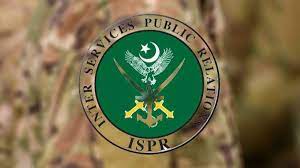The Pakistan Army has awarded long prison sentences to its two former officers for inciting soldiers to revolt after carrying out their court-martial trial under the Pakistan Army Act 1952. According to the Inter-Services Public Relations (ISPR), both retired officers were convicted and sentenced through Field General Court Martial (FGCM) for the charges of inciting sedition among army personnel from the discharge of duties and violation of the Official Secrets Act, 1923, related to espionage and acts prejudicial to the safety and interest of the state.Historically, radical politics had seriously polarized the Pakistani society and extremist behaviors tore apart the fabric of the community.
The May 9 events were the peak of radicalized behaviours during which supporters of a political party weighed aggression against the state and attacked military installations out of love for their party Chief or hatred for the military establishment whom their party accused of masterminding the no-confidence motion against its rule. In fact, the rigid politics not only divided the society but also undermined the institutional discipline and working ethics of the military personnel who are trained on the pure conservative principles of patriotism, jihad, and service to the nation, but a majority of them failed to identify facts from factions and reality from propaganda.
This is the reason that the Pakistan Army’s inquiry commission constituted in the aftermath of the May 9 riots and accused multiple Army officers of complicity and grave professional negligence during the violence. The Army Command served stern punishments on several individuals including a Lieutenant general, three major generals, and seven Briguiders of the Pakistan Army. Multiple retired seniors and numerous lower-ranking officers criticized the Army leadership for misconduct and sedition out of their political motivation and the party’s propaganda.
The recently trialled two military officers have played the role of enemy’s mouthpiece and anti-state propagandists on social media over the past months.Such incidents provide valuable inputs to policymakers and highlight loopholes and snags in the process of selection, training, and afterwards, professional growth that recurrent incidents of subversion, complicity, or political/ religious affiliation of senior military officers had occurred over the past years. This situation merits stringent reforms in the selection, and promotion policies so only well-trained, professional and reserving officers reach sensitive and top slots. So, such embarrassing incidents do not occur anytime in the future.







